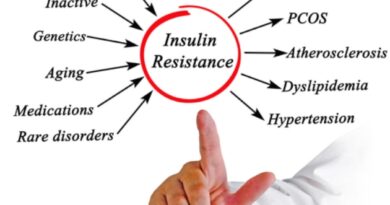How diabetes can affect your heart

Diabetes significantly increases the risk of heart disease. Individuals with diabetes are twice as likely to experience heart disease or a stroke compared to those without diabetes. Moreover, these cardiovascular issues can emerge at a younger age in people with diabetes.
Since 2002, the number of adults diagnosed with diabetes in the U.S. has more than doubled. Currently, about 38 million people have diabetes, and an additional 97 million are at risk, as they have prediabetes and are on the brink of developing the condition.
How does diabetes affect heart health?
Diabetes leads to elevated blood sugar levels, which can damage both the blood vessels supplying the heart and the nerves that regulate heart function. Additionally, individuals with diabetes are at higher risk for high blood pressure and high cholesterol—both of which further increase the likelihood of heart disease. These conditions often occur together, forming what is known as metabolic syndrome, due to their shared risk factors and underlying causes.
Elevated cholesterol levels can contribute to heart attacks and strokes. Cholesterol, a type of fat present in the blood, can accumulate as plaque on damaged artery walls, leading to artery hardening.
Uncontrolled diabetes also heightens the risk of heart failure, a condition where the heart struggles to pump blood effectively. This can result in symptoms such as leg swelling and fluid buildup in the lungs, making breathing difficult.
Heart failure tends to worsen over time, but early diagnosis and treatment can help alleviate symptoms and slow its progression.
How can people with diabetes minimize its effects on the heart?
Early detection of diabetes is crucial. Managing blood sugar levels through lifestyle changes and medication can significantly help control the condition.
Additionally, working with your doctor to manage other risk factors, such as high blood pressure and high cholesterol, is essential for protecting heart health.
Can the damage caused by diabetes be corrected or reversed?
The damage caused by diabetes can often be managed and, in some cases, reversed with appropriate intervention. Key strategies include:
Blood Sugar Control: Maintaining stable blood sugar levels through diet, exercise, and medication can prevent further damage and, in some cases, improve existing conditions.
Lifestyle Changes: Adopting a healthy lifestyle, including a balanced diet, regular physical activity, and weight management, can help improve overall health and reduce complications.
Medication: Medications to control blood pressure, cholesterol, and blood sugar can help mitigate the damage caused by diabetes.
Regular Monitoring: Regular check-ups and monitoring can help detect and address potential complications early.
While some damage, particularly to organs or blood vessels, may be irreversible, effective management can significantly improve quality of life and reduce the risk of severe complications.
What lifestyle changes can help with diabetes and heart health?

Implementing simple lifestyle changes can significantly benefit both diabetes and heart health. Key strategies include:
Follow Medication Guidelines: Adhere to prescribed treatments to effectively manage diabetes and related health conditions.
Eat a Balanced Diet: Focus on consuming nutritious, heart-healthy foods.
Exercise Regularly: Engage in consistent physical activity to support overall health.
Maintain a Healthy Weight: Achieve and maintain a weight that is appropriate for your body type.
Manage Stress: Incorporate stress-reducing practices into your routine.
Quit Smoking: Avoid tobacco use to improve heart and overall health.



